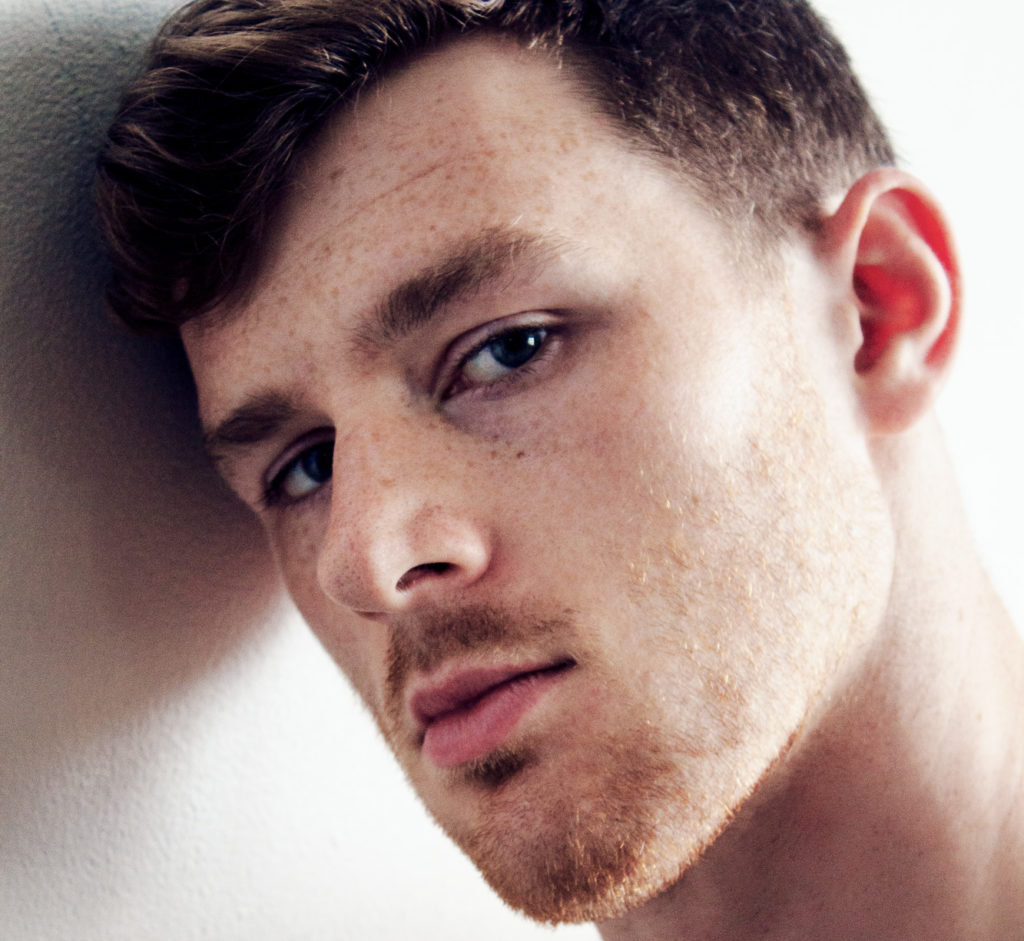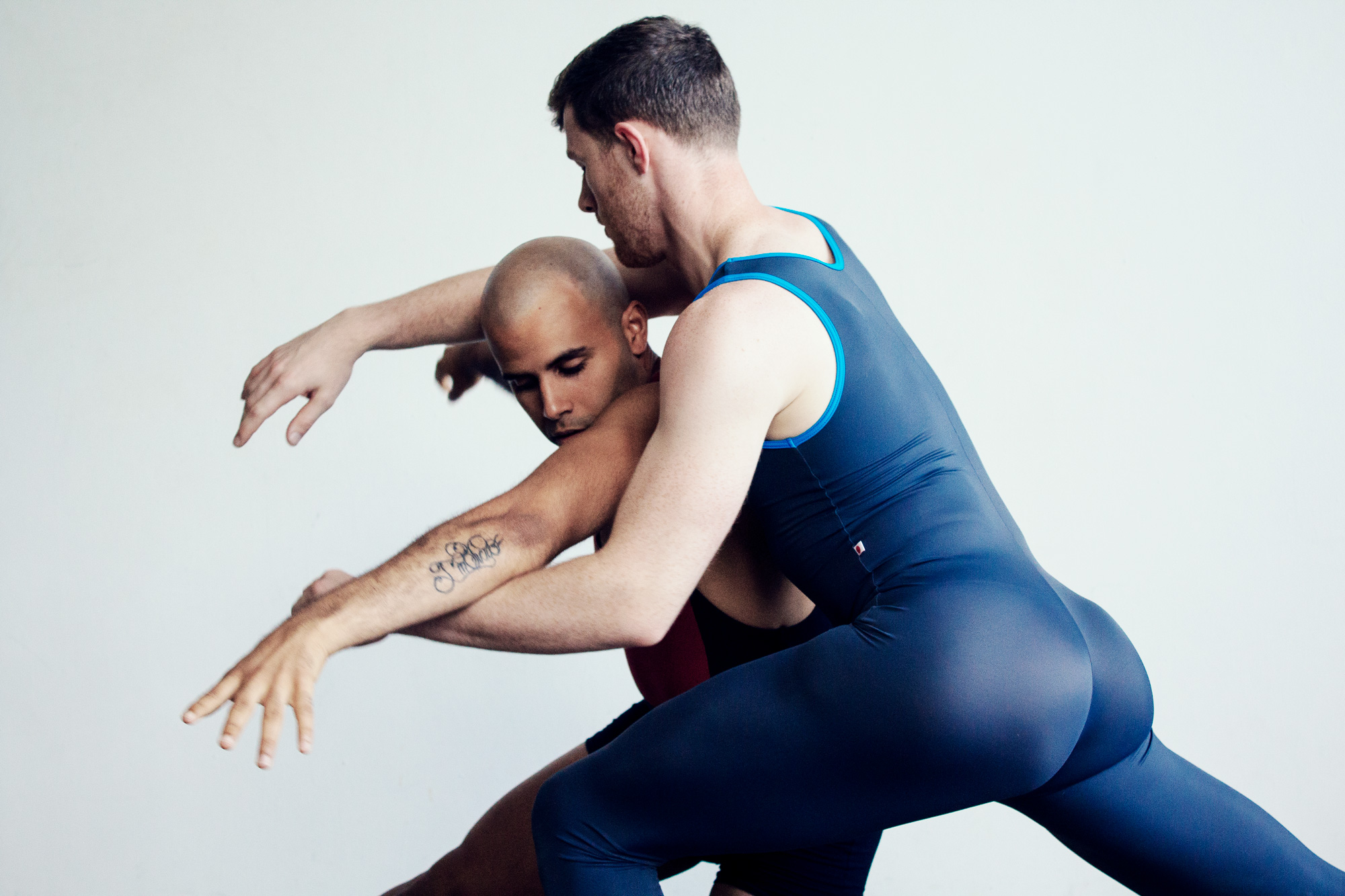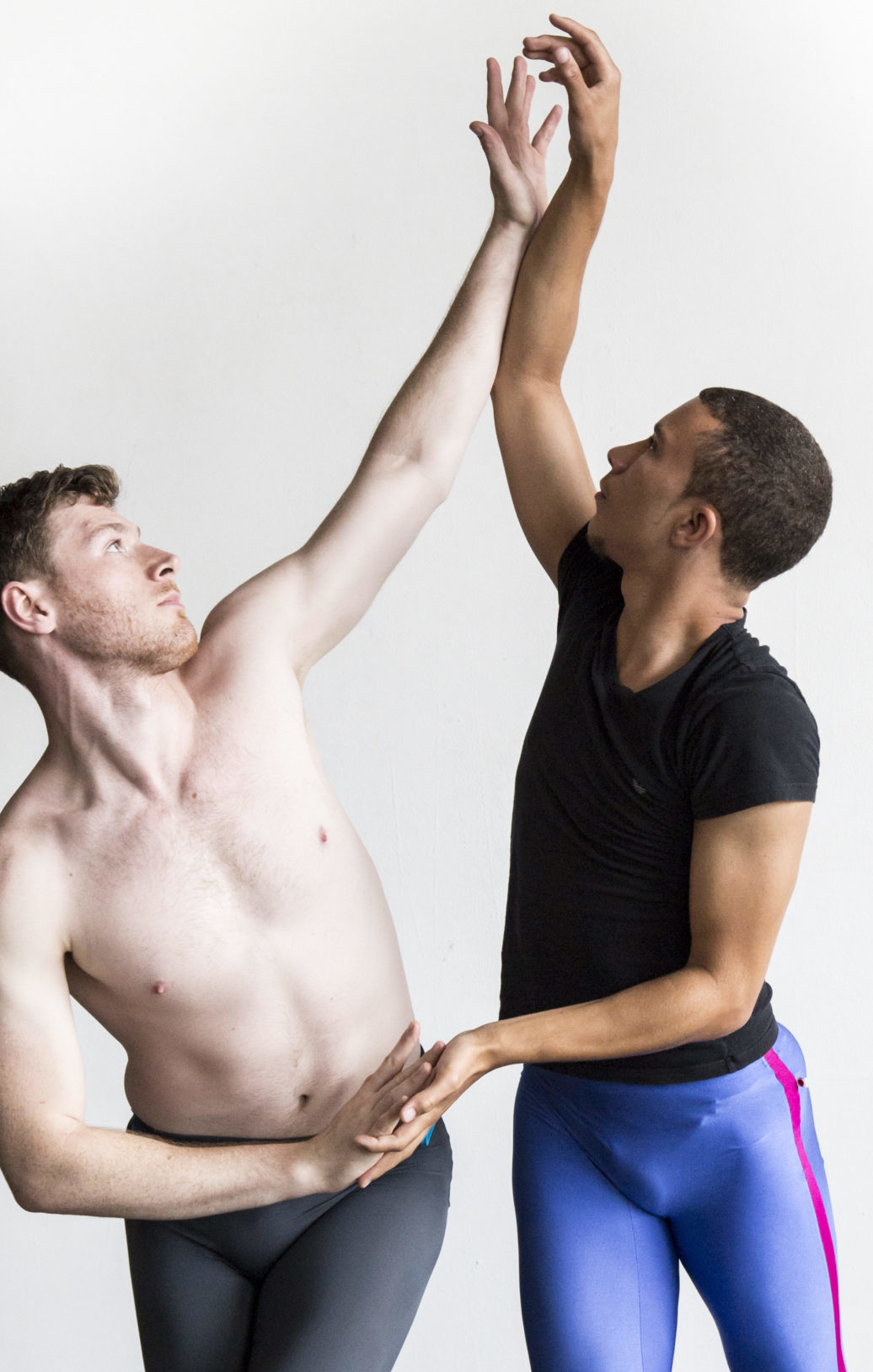Quinton is an early-twentysomething Wisconsin native teaching us the beauty of being imperfectly human.
A conscious and reflective artist in more ways than one, Quinton knows the cost of choosing to dance. As he revealed, “Growing up in the midwest, I was always told as kid that because I danced I wasn’t masculine. I was told by my peers and family members alike that I needed to “man up.”
But he didn’t simply let that ride. He constantly pushed back, asking himself what it meant to be a man in the first place. “For me, being a ‘man’ is about being able to get in touch with my emotions and to not be afraid to express myself – which in reality isn’t really so much about being a ‘man’ as it is about just being human and not letting others tell you how to act or feel.”
Such a life-changing belief has empowered Quinton to not only experience a new outlook on life, but renegotiate his relationship with the arts, creativity, masculinity, and even his sexuality. “One of the hardest things for me was always being told ‘you’re gay, since you’re a dancer.’…A part of me always wanted to deny that I was gay….[and] be straight to prove everyone wrong….
I was sick of people telling me who I had to be and was going to be….Even though I knew inside I was gay, I didn’t want that. I just wanted to be me. I always loved dancing but I really struggled with that….My dancing changed when I stopped putting on that fake standard of masculinity and simply started being and moving how I wanted to.”
Regardless of a male dancer’s sexual preference, comfort in their own skin and identity, or how much they are–or aren’t–perceived as masculine, dance serves as a powerful tool on the search for one’s true self. Not what everyone wants you to be, but who you are brave enough to be.
And as Quinton explains, “I’m humbled by knowing I will never be perfect. So I strive to figure out the idea of what that means to me: perfection being imperfection, the journey to becoming and constantly working to arrive and climb.” And that ultimately leads us to what Quinton hopes any and everyone can learn from his story: that it is okay to love yourself. That it is okay to accept yourself.” Because if you won’t, who will?
Quinton proves that #WhenMenDance they redefine perfection, showing us that we can be anything we want to be. But that we should dare to be who we need to be…for ourselves. Because that’s where true change begins.

Quinton’s Full Story
I had the opportunity to go to a boarding arts high school for my last two years of high school, and I studied dance there. And it was a time I got to dance every day for five hours. It was a time where I really started to understand there’s more than just technique when you dance–it became less class and it became more about the art, and it became a part of me.
Being able to be at that vulnerable state when you’re going through puberty in high school, and you’re going through all of these changes already, and to have art be such a staple in your daily life, made me realize I couldn’t spend a day not dancing.
Dancing for the Carolyn Dorfman Dance Company has taught me a lot about what it means to connect with others through dance. Carolyn’s mother and her two sisters are survivors of the Holocaust so a lot of her work deals with the human condition and how it can be used to either build stronger bonds between people or destroy it completely. She has a phrase that she uses – “We stand for tolerance and unity. The common thread that connects us all.” Dance is an art form that can transcend boundaries. As a white man, I am privileged. But as a dancer I have the ability to connect and share the stories and experiences of the human condition.
Growing up in the midwest, I was always told as kid that because I danced I wasn’t masculine. I was told by my peers and family members alike that I needed to “man up.” I used to ask myself, “But what does the phrase ‘man up’ actually mean, though?” I saw it as something that placed a strict label from society on us on of what ‘being a man’ is all about.
But, for me, being a ‘man’ is about being able to get in touch with my emotions and to not be afraid to express myself – which in reality isn’t really so much about being a ‘man’ as it is about just being human and not letting others tell you how to act or feel.
Dance has taught me a lot about myself. It’s made me break down personal walls that I built up. Growing up as a boy who danced, typical things happened in school–you get bullied and made fun of–so you put up personal walls. With dance, the more that you can connect with it, the less walls you’re going to put up for yourself and the more you can tear them down and really be yourself.
I think that [dance] has challenged a lot of what I think about masculinity. I started training particularly in ballet as a kid, and there’s a lot of gender roles that are typically played in a ballet. What drew me away from ballet was modern dance and being able to do things that were less about fairytales and more about things that were happening right now in this moment.
And so that challenged me to not have a one-sided thought on how I had to look on stage and how I had to dance on stage. It let me experiment with being more fluid and being more grounded, instead of being so up and airy.
Having a chance to speak up and speak out about how art has changed me and being able to work with so many intelligent and creative men in this campaign is crucial. The #WhenMenDance campaign is really looking at the vulnerability aspect and the sensitive side of how men can relate to each other. It is important to do that because otherwise there’s a lot of testosterone in the room that wants to go at each other, proving that you’re better than each other–the alpha male, head of the pack mentality, instead of how can we grow, be, and feel together.
I think of myself as someone who is constantly learning, listening, and trying to take corrections. But I’m also someone who pushes and is always looking for the next thing, my next step. I’m comfortable in the questions and the direction, but I’m humbled by knowing I will never be perfect. So I strive to figure out the idea of what that means to me: perfection being imperfection, the journey to becoming and constantly working to arrive and climb. Always allowing yourself to slip but never letting go.
I hope that people will learn that it is okay to love yourself. It is okay to accept yourself. I struggled a lot as a dancer with my body image, how I look in the mirror compared to the next person. Even more so as a gay male, which makes you even more concerned. It can be very stressful.
One of the hardest things for me was always being told “you’re gay, since you’re a dancer.” I had to come to terms with my sexuality because a part of me always wanted to deny that I was gay. I just wanted to be a male dancer and straight to prove everyone wrong. Not necessarily to run from my sexuality but I was sick of people telling me who I had to be and was going to be. I didn’t want that.
Even though I knew inside I was gay, I didn’t want that. I just wanted to be me. I always loved dancing but I really struggled with that. Realizing that I am a gay male that dances. But because I want to be. It is who I am.
My dancing changed when I stopped putting on that fake standard of masculinity, what was most accepted by others, and simply started being and moving how I wanted to be. I wanted to finally be authentic with who I am– and come to those terms by myself and with myself.
I want people to know that only you can push yourself. Only you can be the one who is going to be able to make the decisions of your life, you have to have the tenacity and grit to keep going. No one can want it for you. In your heart. Your mind. Your body. You have to be the definitive factor with who you are and what you’re going to be. How you present yourself to the world. Your friends. On social media. In real life.
There is a lot of pressure to be something that is picture perfect. But the beauty of life and humanity is that not everything is perfect. It is okay to be ugly sometimes. To not be in the spotlight. To not feel like you have to be performing 24/7.
That has helped me because it allows me to relax. As hard as you want to work, you have to rest. For me, that is coming back to nature and making space for regrowth and reflection. You can throw yourself out there all the time. But you have to make the time to be with yourself and ask yourself how you are doing, if you’re happy with where you are and what you are doing.
You have to be honest with yourself about your present if you want to see positive change in the future.


